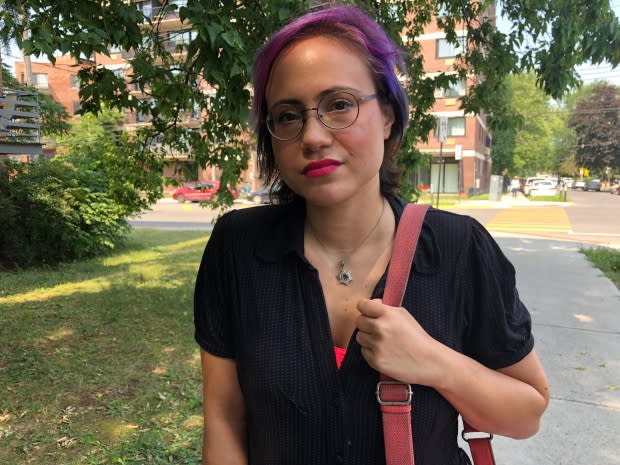Ban on cannabis topicals will hurt patients with chronic pain, says Montrealer
On bad days, Samantha Gold lies writhing on her couch, waiting for her agonizing back pain to pass.
With cannabis topical creams set for legalization across Canada this fall, Gold was hoping to try using them to help manage her pain.
Those hopes were dashed, however, when the Quebec government announced it would be banning the sale of topicals in the province.
That same regulation will also ban the sale of cannabis edibles.
Lionel Carmant, the CAQ's junior health minister, said the government is implementing the ban to prevent children from accidentally consuming cannabis.
As for the creams, he said they have no place in a recreational cannabis shop.
"The topical creams are usually a medicinal use, so we don't think they should be sold at the SQDC," Carmant said.
An alternative to opioids, Gold says
Gold suffers from osteoarthritis, spinal stenosis and three herniated disks. Though most of her pain is on the left side of her back, she also suffers from nerve damage on her right side.
"It sometimes makes it difficult to walk," Gold said. "There are some days that are so bad, I really just have to lie on the couch on a pack of ice."
She has undergone surgery for her back but still struggles with chronic pain daily.
To cope, she uses a mixture of caffeine, prescription opioids, and medical cannabis.
Gold has never tried using a cannabis topical for her pain, but she was hoping to be able to integrate it come fall.
"If they want chronic pain patients to cut their opioid use, then they need to make alternative treatments available," Gold said.
Dr. Yoram Shir, who works with McGill's Alan Edwards Pain Management Unit, said there is almost no scientific data that supports the use of topical cannabis for pain.
"On the other hand, anecdotal reports indicate it might be useful, and I carefully agree with the notion that it might be found beneficial," Shir said.
He added that people need to be cautious with dosage because there is "no real data supporting its use."

Gold is concerned that the province's preemptive ban will deter researchers from looking into whether cannabis can be beneficial for chronic pain patients.
She would like to see government officials consult with chronic pain patients and with specialists.
"If there's a possibility that it can help people like me, then it should be accessible and it should be considered as a treatment option," Gold said.
"To just ban it arbitrarily without having pain patients in the conversation is not very fair to us."
The federal regulations on cannabis edibles, topical products — such as ointments and skin creams — and extracts are set to go into effect on Oct. 17, 2019.
Quebec's new rules will be subject to a 45-day consultation period before they can take effect.

